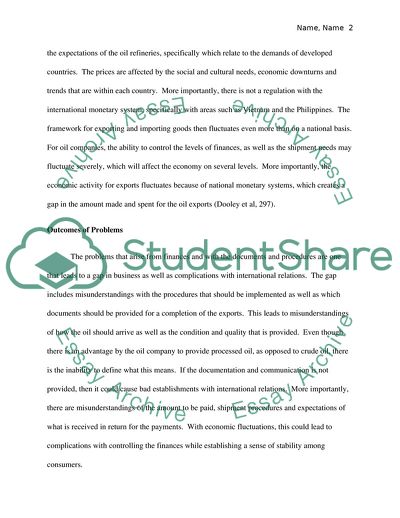Dung Quat Oil Refinery Term Paper Example | Topics and Well Written Essays - 1000 words. https://studentshare.org/macro-microeconomics/1741738-dung-quat-oil-refinery
Dung Quat Oil Refinery Term Paper Example | Topics and Well Written Essays - 1000 Words. https://studentshare.org/macro-microeconomics/1741738-dung-quat-oil-refinery.


